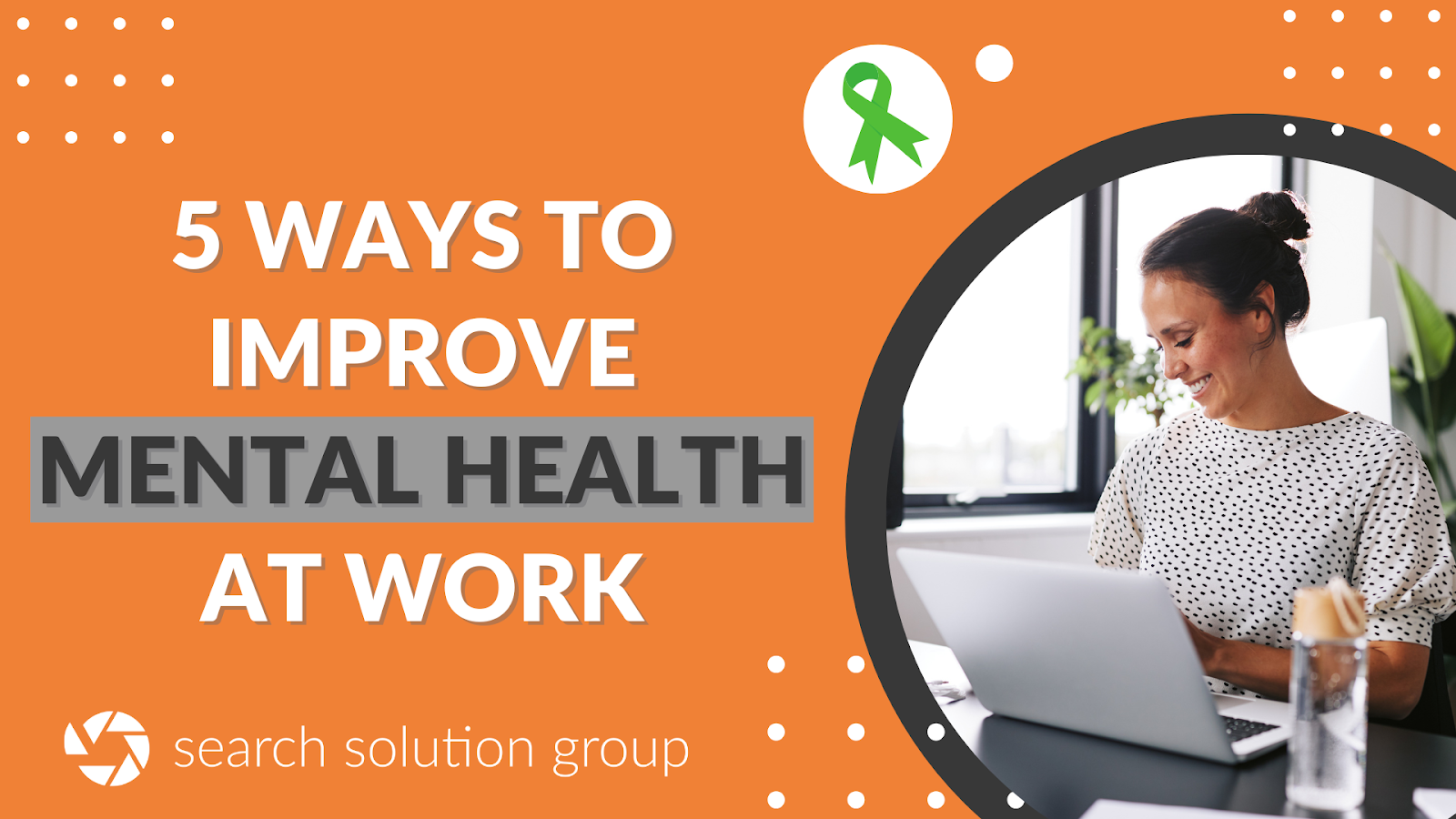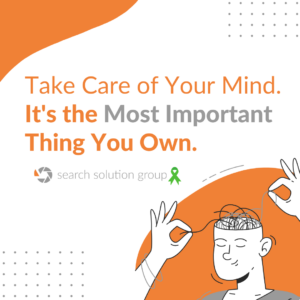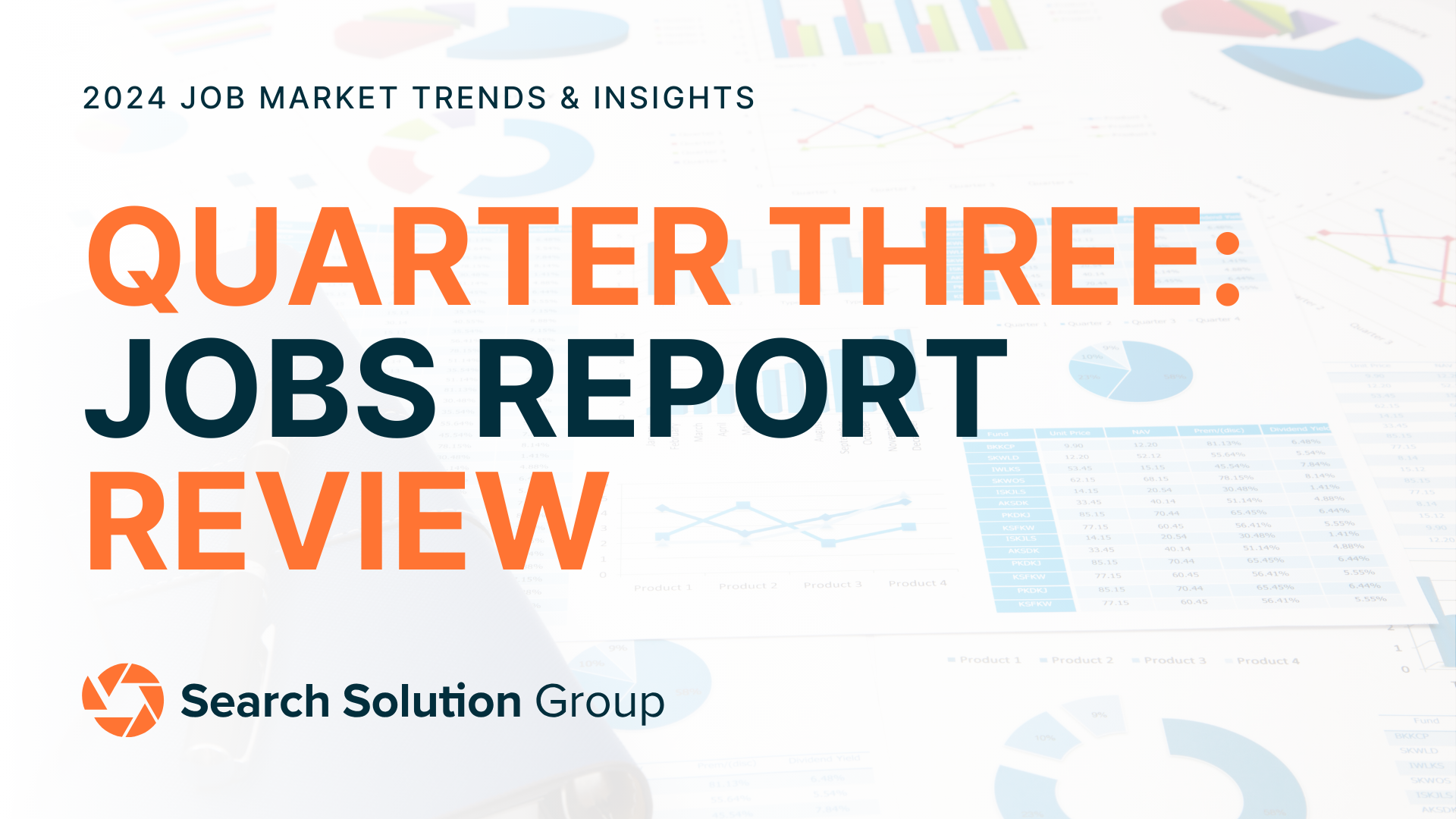It’s no secret that workplace stress and burnout are an ever-increasing issue in today’s world. With long hours, tight deadlines, and the everyday hustle of corporate life, it is almost impossible to manage your mental health at work while still managing your responsibilities. However, there are plenty of ways employers and employees alike can take action to improve our collective mental well-being in (and out) of the office. Open conversations about mental health in the workplace are vital for helping employers create healthier environments for their staff. No matter where you work, whether it’s a startup, a corporation, or a home office, implementing certain practices can contribute to a positive work environment and overall mental well-being. Here are five ways to improve mental health at work.
Take Breaks
Regular breaks throughout the day are crucial in maintaining our well-being and boosting productivity. In addition to reducing the risk of physical problems, breaks can improve our mental health by creating a small but necessary space to step back from work demands and allow our minds to rest and recharge.
Taking breaks can include:
- Stepping outside for fresh air.
- Engaging in a quick exercise routine.
- Simply taking a step back to engage in a relaxing activity.
In addition, taking frequent breaks can also have profound effects on our mood and overall outlook. Taking breaks reduces stress levels, anxiety, and depression and can improve our sense of well-being. Set aside time to take breaks at regular intervals, which will help keep you healthy, productive and improve your mental and emotional state.
Practice Mindfulness
Mindfulness is a mental state achieved by focusing on the present moment while calmly acknowledging and accepting one’s feelings, thoughts, and surroundings. It involves focusing on the present moment, being fully present in those moments, and not allowing past experiences or future concerns to distract from the present. As a result, mindfulness positively impacts mental health and well-being, reducing stress and anxiety, improving focus and concentration, and enhancing overall job satisfaction.
Overall, mindfulness is a highly effective way to improve well-being, mental health at work, reduce stress and anxiety, and become more present and aware in the moment. It takes practice in many different forms, and incorporating it into one’s daily work routine can lead to a more positive outlook and increased productivity. Setting aside a few minutes each day for mindfulness practice, or incorporating it into your work routine, such as taking a mindful walk during lunch break, can make all the difference in the world.
Connect with Others
Social interaction is crucial for human beings’ emotional and psychological well-being. Engaging in social activities and spending time with friends, coworkers, and family can significantly help to manage stress and anxiety. In addition, connecting with others fosters a sense of belonging, making individuals feel valued and appreciated, which contributes considerably to individuals’ life satisfaction and happiness – a crucial component of mental well-being.
Bonding activities like team-building exercises, lunch breaks, or after-work social events can be incredibly beneficial. They promote camaraderie, reduce work-related stress, and facilitate positive communication and collaboration. Ultimately, maintaining solid social bonds underscores the critical role of social relationships in enhancing mental health and promoting emotional well-being.
Set Realistic Goals
Managing stress and anxiety is essential to maintaining productivity and success in the workplace. Overworking and setting unrealistic goals can lead to burnout, high levels of stress, and a sense of failure. Setting achievable goals and establishing realistic expectations for yourself is crucial to avoid these adverse outcomes by taking the time to prioritize your tasks, breaking them down into small, manageable steps, and celebrating your successes along the way.
Setting achievable goals can significantly impact your ability to manage stress and anxiety in the workplace. Prioritizing your tasks can also help you manage your workload more effectively, allowing you to focus on the most pressing tasks first and giving you a greater sense of control over your schedule. Finally, recognizing your successes can provide an overall sense of achievement and promote a positive attitude toward work.
Take Care of Yourself
Taking care of oneself is more than just a nice-to-have; it is essential for maintaining one’s physical and mental well-being, especially in the workplace. For example, getting enough sleep, eating a balanced diet, staying hydrated, and engaging in regular exercise can all help to reduce stress and improve mood. Furthermore, self-care extends beyond the physical realm. It is also important to prioritize activities and hobbies that bring joy and reduce stress.
Taking time for oneself, whether it is to read a book or take a relaxing bath, can help reduce anxiety and improve overall mood. Self-compassion is also an essential component of self-care, which involves showing oneself the same kindness and understanding as one would lend to a friend or loved one. When individuals prioritize self-care, they are better equipped to handle the demands of the workplace, feel more fulfilled in their personal lives, and lead a happier and more productive life.
Mental health affects an individual’s personal life and significantly impacts their professional life. Stressful working environments can lead to burnout, decreased productivity, and poor job satisfaction. It is important to note that mental health practices are not one-size-fits-all and may vary from person to person. In addition, some individuals may benefit from professional help, such as therapy or counseling. In conclusion, prioritizing mental health at work is crucial for personal and professional well-being. Individuals and companies can promote a healthier and more productive work environment by incorporating simple practices, such as taking breaks, practicing mindfulness, connecting with others, setting realistic goals, and seeking help when needed. Taking care of your mental health is a necessary and intelligent investment in your overall well-being and success.
At Search Solution Group, we know how important your mental health at work as well as at home is. A successful work-life balance requires an employer that values you – all of you. At SSG, we want to ensure you find that exact thing – we’re your partners in finding that perfect balance. Ready for the next step? Visit our website and submit your resume today!






